Please note that this summary was posted more than 5 years ago. More recent research findings may have been published.
Nine ways research could save the NHS money
This collection covers a range of treatments and initiatives that are cost effective for the NHS.
Weight loss surgery is value for money in people with severe obesity

On average people lost 5kg more in each of the first four months after weight loss surgery than those of a similar weight who did not undergo surgery. Obesity is linked with health conditions such as type 2 diabetes, which is expensive to manage and detrimental to patients health.
Surgery is no more effective than a sling for misaligned shoulder fractures
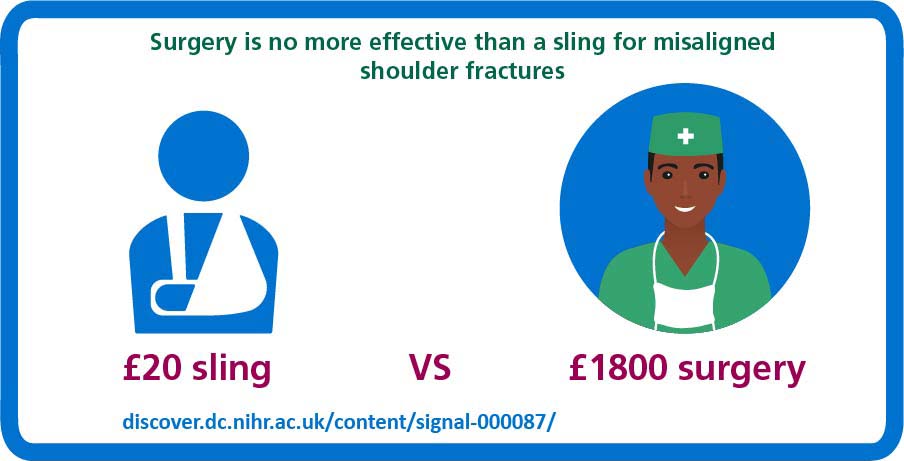
This trial showed that treatment with a sling was as effective as surgery for treating people with displaced fractures of the upper arm. This evidence could help reduce complications for patients and costs to the NHS.
Rotavirus vaccine helped to save the NHS money with a reduction in GP visits during winter
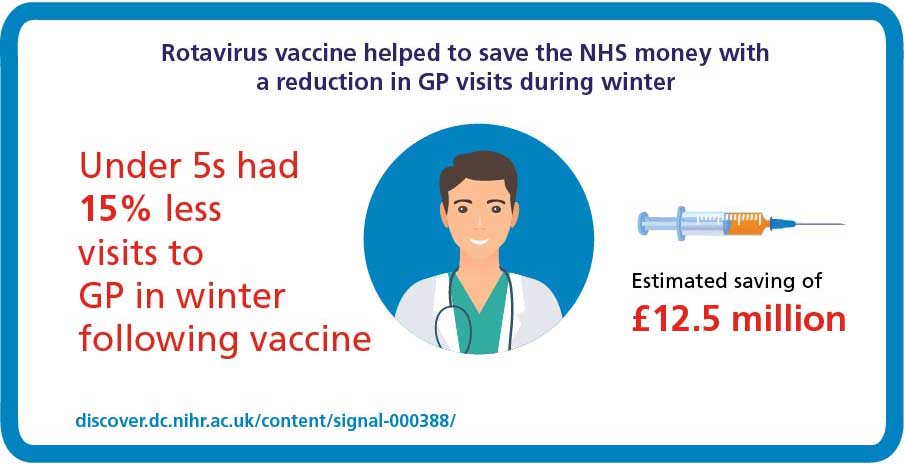
Since the introduction of the rotavirus vaccine in July 2013 there has been a 15% reduction in rates of infectious diarrhoea in children up to the age of five. The reduced number of healthcare visits was estimated to have saved the NHS in England £12.5million from July 2013 to June 2014.
Public health interventions may offer society a return on investment of £14 for each £1 spent
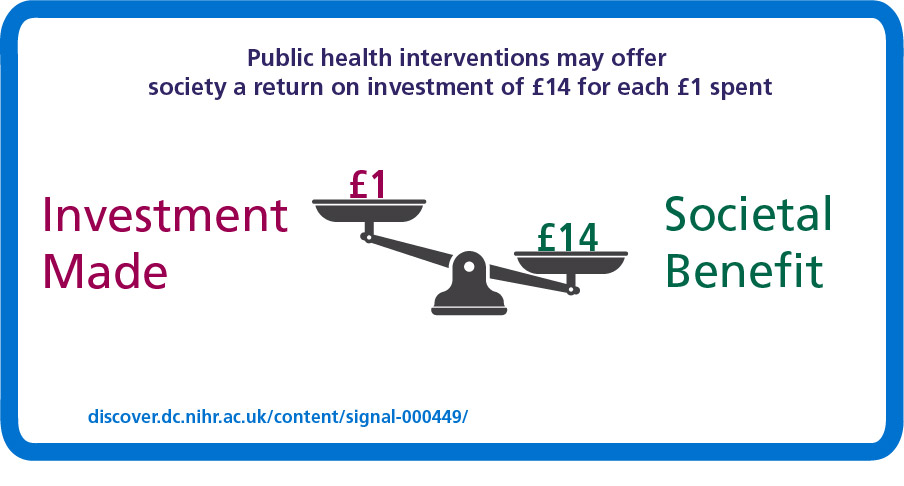
This review compared "return on investment" and "cost-benefit" estimates for a range of public health interventions. Each £1 invested in public health interventions could offer an average return on investment to the wider health and social care economy of £14.
Less stringent target oxygen levels for acute bronchiolitis are safe and effective
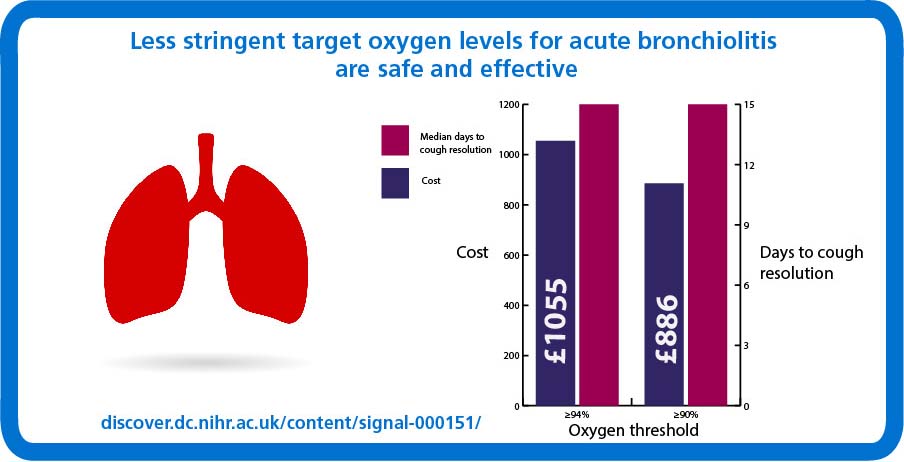
This trial found that acute bronchiolitis in children can be safely managed to a slightly lower target level of oxygen saturation than is currently used. A lowering in the threshold may save NHS resources by reducing length of stay in hospital. In this study the cost of the hospital stay was £886 in the lower threshold group, compared to £1055 for those managed to the higher target.
Routine replacement of intravenous cannulae is unnecessary and costly
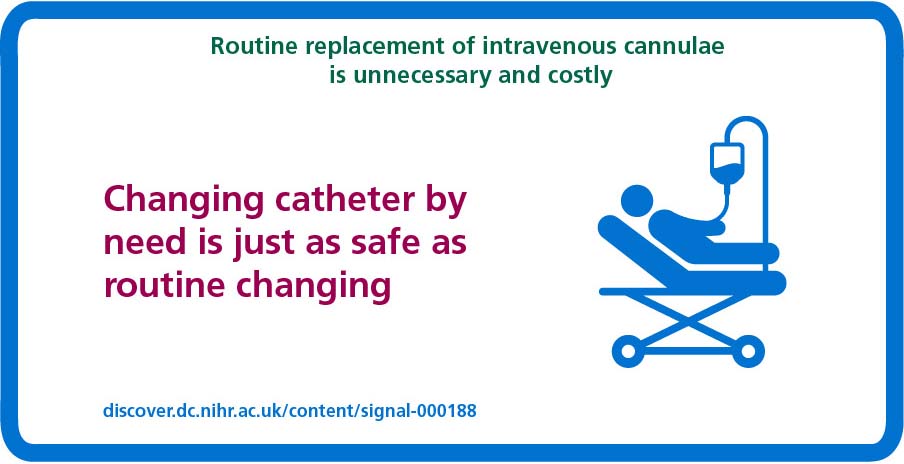
Changing peripheral venous catheters ("cannulae") according to clinical need is just as safe doing it routinely every three to four days. This review confirmed that catheter replacement by need is a better approach, and that it was equally safe and cost-effective.
Behavioural activation (BA) is cheaper and can be as good as Cognitive Behavioural Therapy (CBT) for treating depression
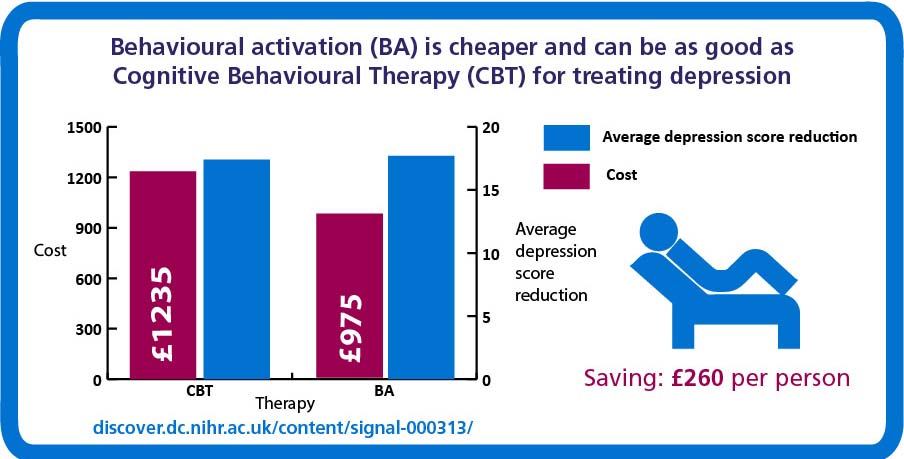
A simpler therapy called behavioural activation (BA) can be as effective at treating adults with depression as cognitive behavioural therapy (CBT). This therapy is delivered more cheaply, by trained mental health workers.
Redesigning oral surgery with enhanced primary dental care, electronic referral and triage may save overall costs
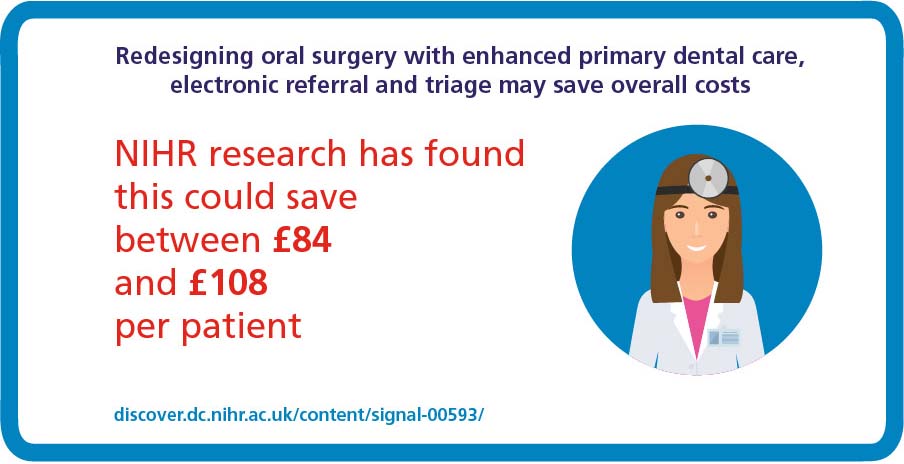
An electronic referral system, including consultant-led triage and an advanced oral surgery service in primary care, results in fewer people requiring oral surgery in hospital. A study showed that this process comes in at a lower cost than previous arrangements.
Same day treatment of uterine polyps in clinics is as good as inpatient treatment and better value for money
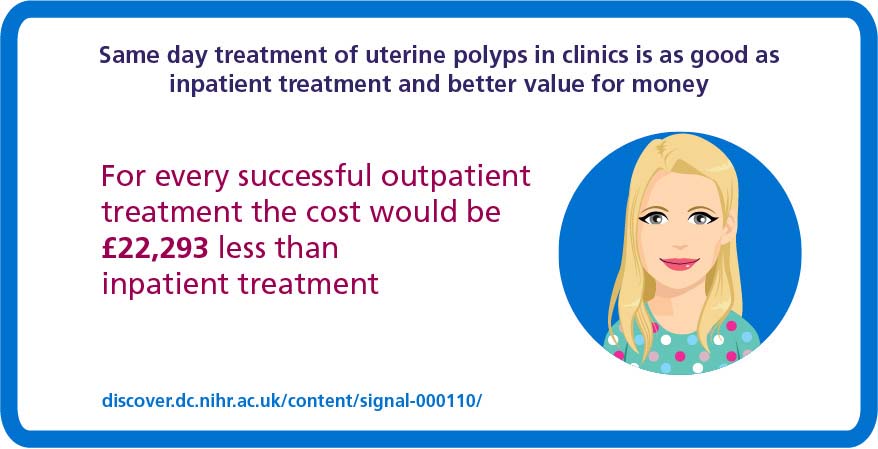
Produced by the University of Southampton on behalf of NIHR through the NIHR Dissemination Centre